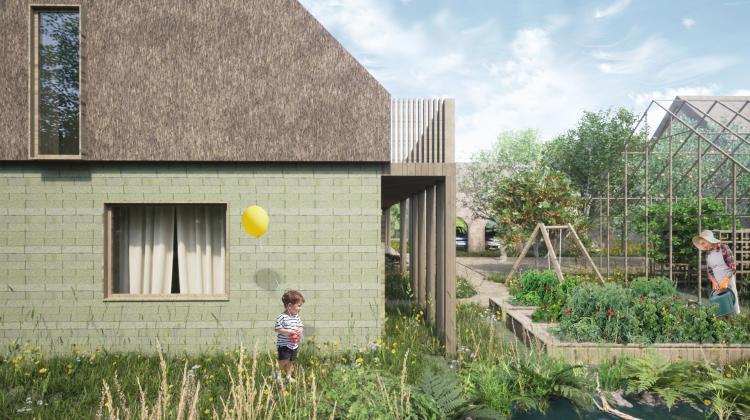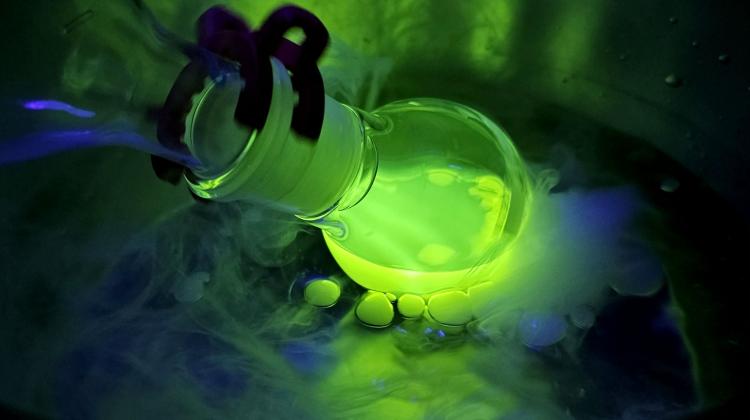Cheaper antibodies from Polish-coordinated project
 PAP © 2012 /
PAP © 2012 /
New methods for industrial purification of monoclonal antibodies used to treat Alzheimer\'s disease and cancer have been developed by researchers from 12 countries, including Poland, in the project "Advanced Interactive Materials by Design" co-ordinated by Prof. Andrzej Górak.
The project "Advanced Interactive Materials by Design" (AIMS), carried out in 2004-2008, was one of about 900 research projects funded in the past 10 years by the European Union under the programme "Nanotechnology, new materials and processes". In June, this project and nine others received the prestigious Best Project Award. The criteria included the projects’ contribution to development of technology, the number of patents and the creation of new businesses and jobs.
The project coordinator was Andrzej Górak, professor at the Technical University of Dortmund and Łódź University of Technology. He explained in an interview with PAP that the methods developed by researchers are already being used by large pharmaceutical companies, both in the production of existing drugs, as well as the development of new ones. Although the AIMs project ended few years ago, its results have become the starting point for approximately 30 new projects funded by the EU, national science foundations and industry.
The researcher explained that monoclonal antibodies are protein molecules that can be used to produce drugs to treat cancer or Alzheimer\'s disease. With these antibodies treatment is more effective, and in the case of cancer therapy not as destructive for the patient, as chemotherapy. A large part of the cost of industrial production of such drugs is the purification of antibodies. The new method not only makes this part of the process ten times cheaper, but also significantly reduces the production time of new drugs.
In simple terms, the antibodies are collected from the animals and propagated. Prof. Górak explained that propagation produces fermentation broth, which is a mixture of various substances, including proteins and antibodies. The antibody concentration in the liquid is small. One litre of broth usually contains up to 3 grams of therapeutic proteins, and each gram is worth... even a few thousand euros. The pharmaceutical industry can not afford a loss in the recovery of these precious particles from the mixture. "If there are no effective methods of recovery of antibodies, we flush the money with the broth" - explained the scientist.
In the AIMs project, scientists tried to develop the most effective methods of extraction of antibodies from mixtures. They used the fact that in the process of extraction antibodies are soluble in certain solvents more easily than in others (e.g. water). New solvents used to separate expensive molecules from pollutants.
Another method developed in the AIMs project was developing special filters, called adsorbers, to the surface of which only therapeutic antibodies attach. Pollutants remain in the liquid, so all that remains is to recover precious compounds from the filter and used them in the manufacture of tablets.
The researcher explained that the antibodies are very large molecules that weigh 150 thousand times more than hydrogen. Their structure determines to which other molecules (e.g., absorber surfaces) these particles will attach. Knowing the structure of molecules therefore allows to more precisely control the production and use of the drug. Prof. Górak explained that the development of such adsorbers would not be possible without the work of the team from Łódź University of Technology, which thoroughly investigated the structure of antibodies.
The AIMs project also involved another Polish unit - Central Institute for Labour Protection - National Research Institute. Its task was to prepare expert opinions on public acceptance of drugs from antibodies.
The AIMs project developed methods of purification, which can be used for as many as 150 different types of monoclonal antibodies, but Prof. Górak noted that in future the solutions can also be used in the manufacture of drugs from other, previously untested antibodies.
The project budget was more than 20 million. 24 institutions from 12 countries participated.
PAP - Science and Scholarship in Poland, Ludwika Tomala
agt/ mrt/
tr. RL
Przed dodaniem komentarza prosimy o zapoznanie z Regulaminem forum serwisu Nauka w Polsce.















